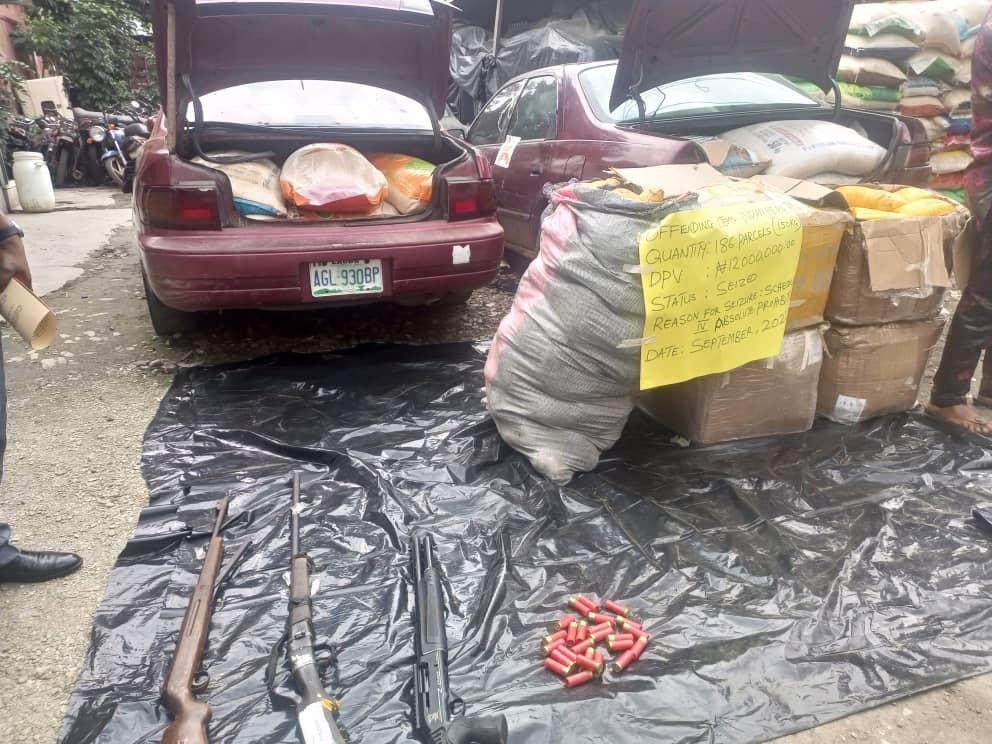The Federal Operations Unit, FOU Zone A, of the Nigeria Customs Service, NCS yesterday said it recovered one pump action rifle, two locally made guns, 35 live cartridges from smugglers after a gun battle around Idi-Roko, Ogun State.
The Unit also disclosed that it recovered a total of N107.8 million as duty underpayment from goods cleared from the seaports and border post.
Disclosing this at a press briefing in Lagos, Customs Area Controller, CAC of the Unit, Hussein Ejibunu, goods with Duty Paid Value, DPV worth N633.4 million were also seized last month.
Ejibunu explained that the impounded items include 7,328 50 kilograms bags of foreign parboiled rice, 121,550 litres of Premium Motor Spirit, PMS, 68 cartons of frozen poultry and 37 crates of eggs used to conceal rice.

Other items he noted are, 150 kilograms parcels of Indian Hemp, 10 pieces of military camouflage bags, 1,955 bales of used clothing and six units of used cars all in the month of September.
The Customs boss said that “The unit made a series of seizures with a total Duty Paid Value, DPV of N622.4 million. In our efforts to prevent losses to the government, we also recovered the sum of N107.8 million.”
He also disclosed that “the Federal High Court passed judgements in favor of this Unit on three criminal cases; securing the conviction of six people for being in possession of smuggled goods. While six civil suits against the Unit were dismissed for lack of merit.

“This is the highest single seizure of used clothing made by the service this year, and we have commenced investigations to know those behind this massive importation, and at what entry point these clothes came into the country.
Used clothing in commercial quantity falls “under absolute prohibition.They have been seized and we are on the trail of the smugglers to get them arrested.
“Smuggling of used clothes has economic and health implications on our people. The government in its wisdom wants the local textile industry to enjoy protection and create more jobs for Nigerians from the cotton farms through the textile and garment factories to our markets.
“This is coming at a time when the world is wary of monkeypox whose mode of transmission includes clothing. According to a World Health Organization fact-sheet, “Monkeypox” is transmitted to humans through close contact with an infected person or animal, or with material contaminated with the virus”, he noted.
![[Photos] Customs impound pump action rifle, cartridges, recovers N107.8m](https://www.trumpetmagazine.com/wp-content/uploads/2022/10/WhatsApp-Image-2022-10-05-at-12.43.54-PM-1-768x576-1-750x563.webp)

